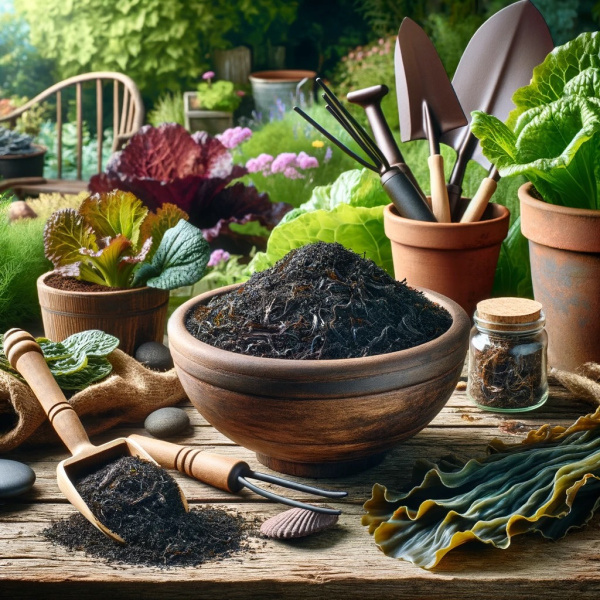
Kelp Meal Introduction
Kelp meal, derived from dried seaweed, is a remarkable soil amendment that brings the rich diversity of ocean nutrients to your garden.
As an organic source of minerals and vitamins, kelp meal offers a sustainable way to enhance plant growth, improve soil health, and increase resistance to stressors like drought and pests.
This comprehensive guide explores the myriad benefits of kelp meal, outlines its nutritional profile, provides usage recommendations, identifies ideal plant and soil types for its application, and discusses its environmental impact.
Whether you're tending to a backyard vegetable garden or nurturing ornamental plants, incorporating kelp meal can elevate your gardening efforts to new heights.
Typical NPK Value: 1-0-2
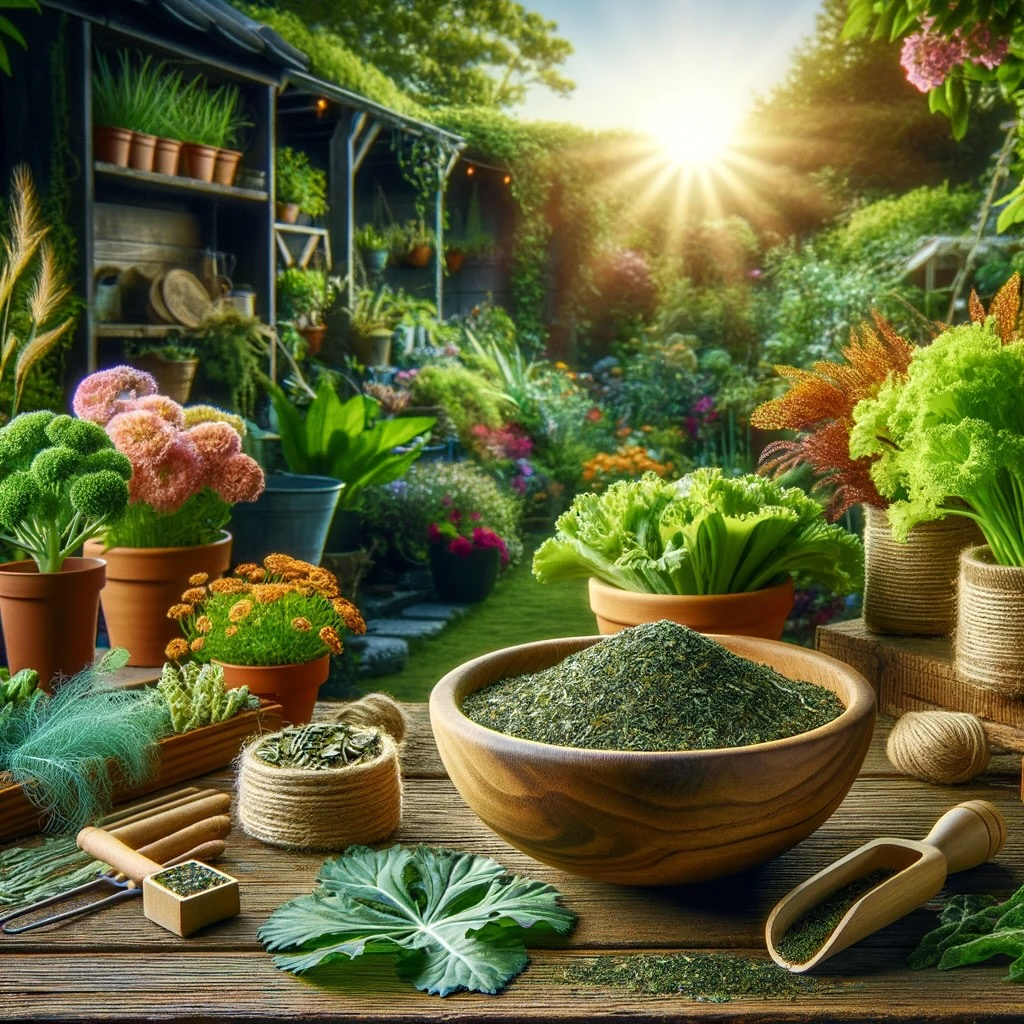
Kelp Meal Key Benefits
Kelp meal is prized for its ability to stimulate soil activity, enhance plant vigor, and boost yields. Its benefits include:
- Enhanced Soil Health: Kelp meal enriches the soil with organic matter, improving texture, aeration, and moisture retention.
- Rich Source of Nutrients: It provides a broad spectrum of trace minerals and vitamins essential for plant growth, including iodine, potassium, and magnesium.
- Growth Stimulation: Natural growth hormones in kelp, such as cytokinins and gibberellins, promote root development and improve seed germination rates.
- Stress Resistance: Kelp meal can enhance plants' resilience to environmental stress, including drought, frost, and pests.
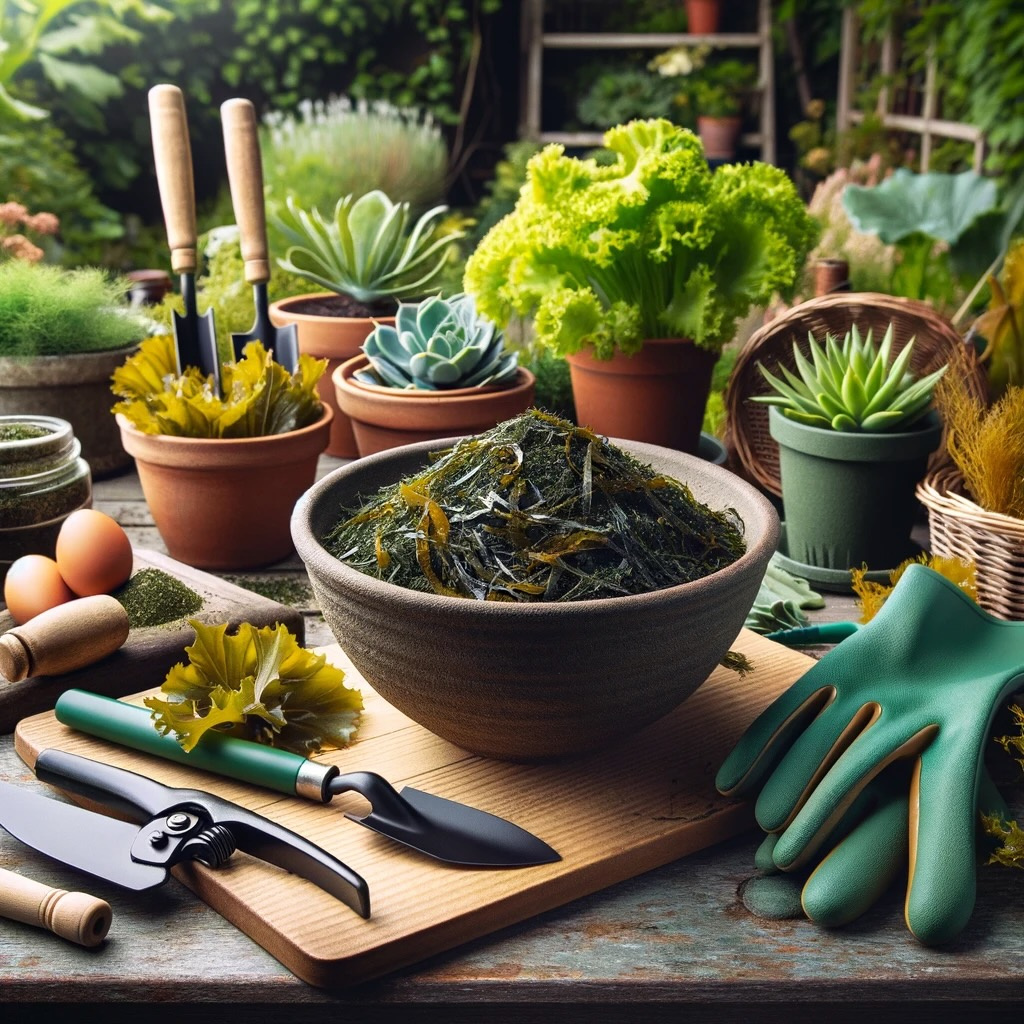
Kelp Meal Nutritional Profile
Kelp meal is a powerhouse of nutrition, offering more than 60 trace minerals and essential nutrients that support a wide range of physiological functions in plants.
These nutrients contribute to stronger cell walls, improved chlorophyll production, and more efficient nutrient uptake.
Additionally, the presence of natural plant hormones and amino acids in kelp meal supports robust growth and development from root to leaf.
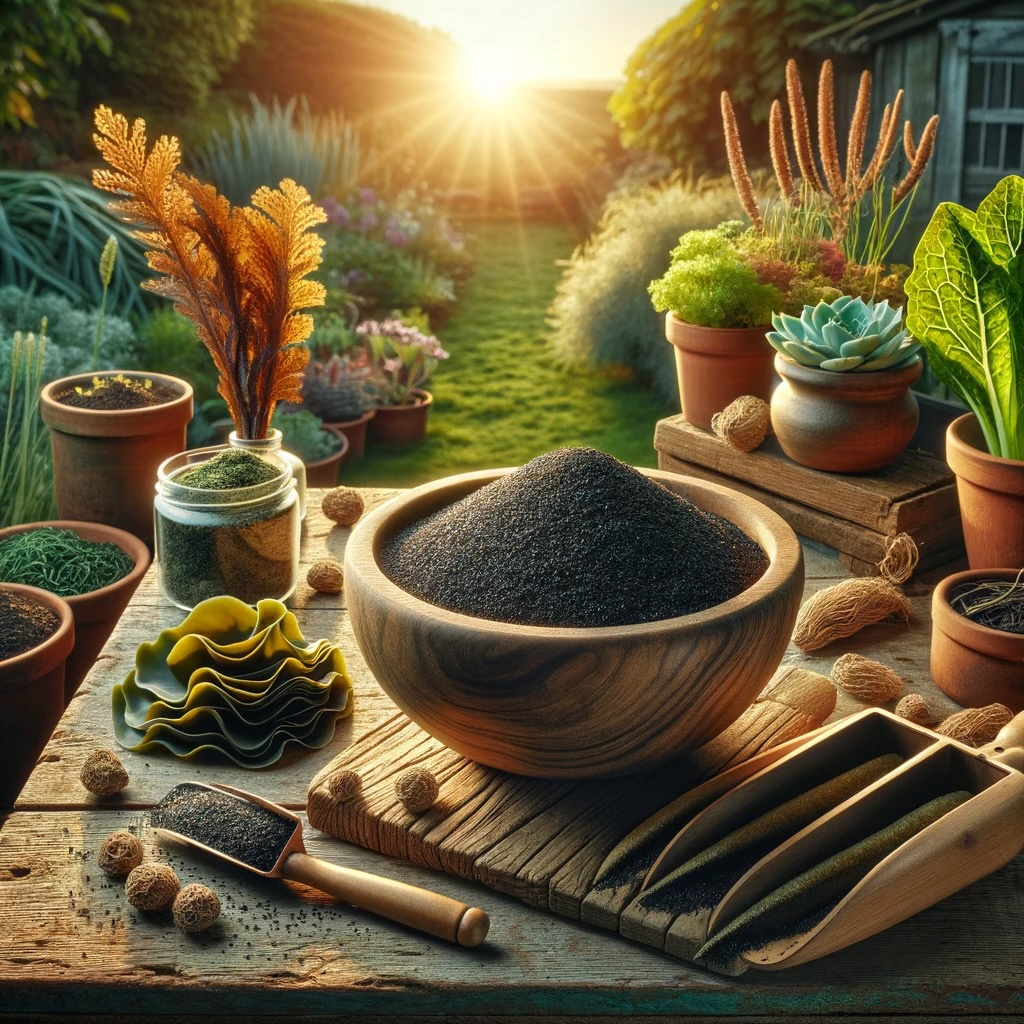
How to Use Kelp Meal
Integrating kelp meal into your garden is simple and effective:
- For Garden Beds: Apply 1-2 pounds of kelp meal per 100 square feet, mixing it into the top few inches of soil before planting. This can be done in the spring to prepare for the growing season and again in the fall to condition the soil over winter.
- For Potted Plants: Mix 1 tablespoon of kelp meal per gallon of potting soil or sprinkle a small amount on the soil surface, gently working it in.
- As a Liquid Fertilizer: Create a kelp meal tea by soaking 1 cup of kelp meal in a gallon of water for 1-2 days, then use it to water plants directly for a quick nutrient boost.
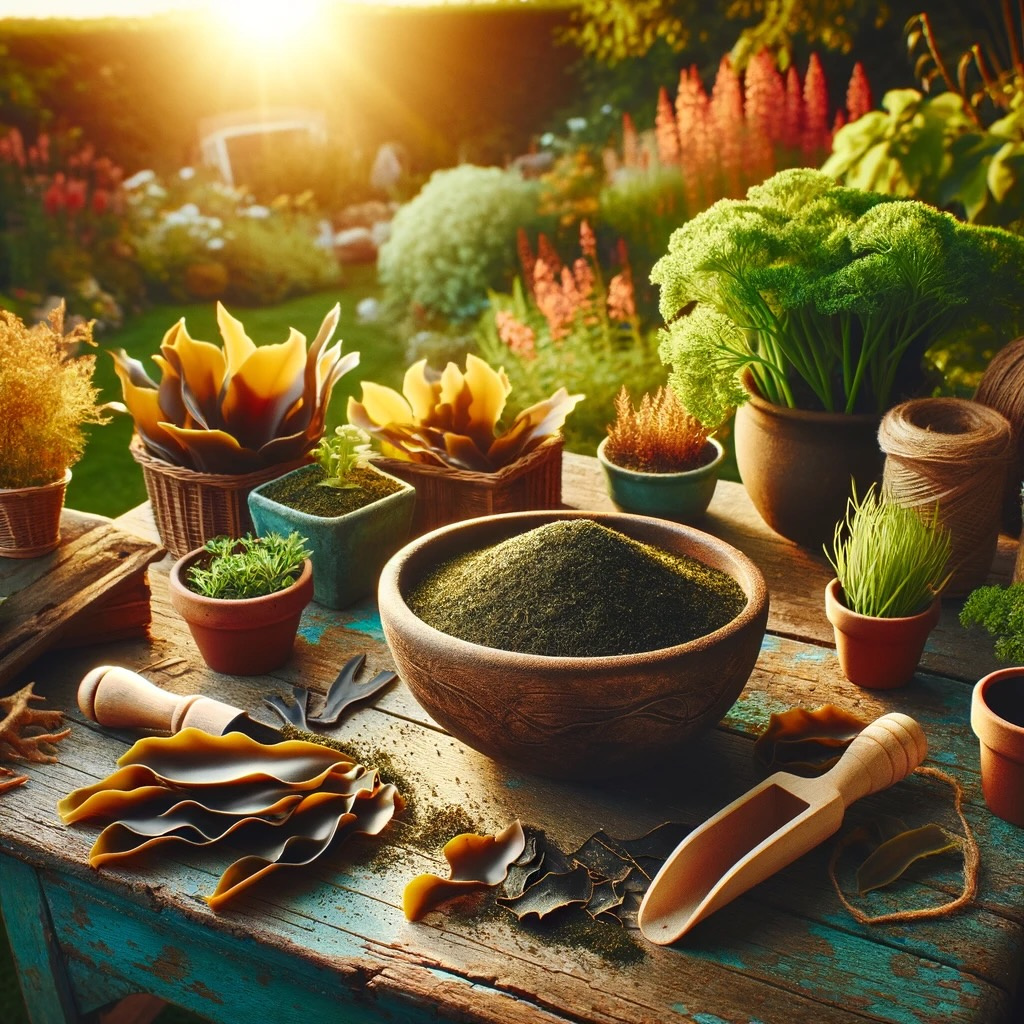
Ideal Plants and Soil Types
Kelp meal is incredibly versatile, suitable for nearly all plants and soil types. It's particularly beneficial for vegetables, fruits, and flowers, which thrive on the rich mineral content and growth hormones.
Kelp meal can be especially advantageous in soils lacking in organic matter or trace minerals, helping to rejuvenate and revitalize nutrient-depleted soils.

Sustainability and Environmental Impact
The use of kelp meal as a soil amendment aligns with sustainable gardening practices.
Harvested from the ocean in a responsible manner, kelp is a renewable resource that contributes to the ecological balance of marine environments.
Its application in gardens supports organic and eco-friendly cultivation methods, reducing the reliance on chemical fertilizers and enhancing soil biodiversity.

Kelp Meal Tips and Tricks
To maximize the benefits of kelp meal in your garden, keep these tips in mind:
- Regular Applications: For ongoing soil health and plant vitality, incorporate kelp meal into your gardening routine at least twice a year.
- Combine with Other Amendments: Kelp meal works well in conjunction with other organic amendments like compost and worm castings, creating a nutrient-rich soil environment that supports vibrant plant growth.
- Monitor Growth: Observe your plants for signs of improved vigor and health after applying kelp meal, adjusting your gardening practices as needed to support optimal growth.

Kelp Meal Conclusion
Kelp meal is an invaluable asset for gardeners seeking to enrich their soil naturally and support sustainable gardening practices.
By leveraging the ocean's bounty, you can provide your plants with the essential nutrients and growth stimulants they need to thrive.
We encourage you to check out our shop and try kelp meal in your garden. Together, we can cultivate lush, productive gardens that reflect our commitment to environmental stewardship and the well-being of our planet.


